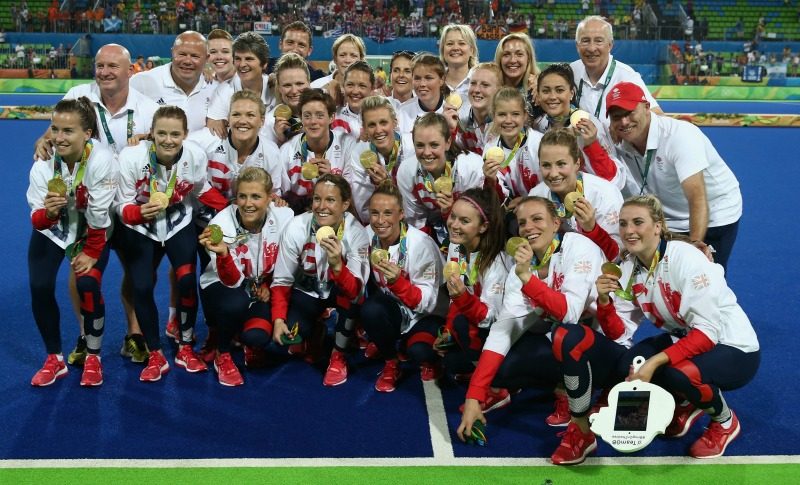Actor, writer and keen Hockey player Helen Oakleigh is still on cloud nine following Team GB’s historic win against the Netherlands.
Friday 19 August 2016 saw arguably the most important moment in sporting history for female team sports when Team GB’s Women’s Hockey side won Gold at the Rio 2016 Olympics.
Not only did the team become the best in the world, but rather importantly for LGBT rights, the victorious side included the first same-sex married couple to win Gold together, namely Helen and Kate Richardson-Walsh.
It gets even better; when the game went to penalties, the BBC chose to postpone the news so that viewers could continue to watch the game. This is so symbolic as traditionally it is rare for any game other than football to be awarded this honour. Better still, this is the first time a female team sport has taken priority on prime time TV in an event that promotes strong, fast and powerful women, sending out positive role models to all genders around the UK.
About time.
There is a huge amount of research that confirms that traditionally women on TV are often sexualised or seen as an “accessory”. For example, “the wife”, “the girlfriend” or “the mother”. Whilst women do often also hold these roles, it is so refreshing to see role models who are independent in their own right. That is what makes the women’s hockey team so exciting. They are strong, working hard to fight for Gold, and they achieved their goal.
Hockey is a fast and powerful game which takes a quick eye and mind to follow. Compared to slower and softer football matches, as favoured by the tabloid papers, hockey is highly popular by those who prefer a higher paced game to watch. The final delivered that and more. It’s not a game for the faint hearted; hockey demands passion, skill and determination to be better than your opponents and to be fearless on the pitch.
So I think it was fantastic that the BBC respected the fans and prioritised the game over the news. The game overran considerably and yet it was not forced over to BBC2. Instead, they made the news wait.
There have been lots of complaints in recent years that women’s voices on TV – be they in dramas, panel shows or political interviews – have been cut off mid-sentence. The fact that the BBC did not cut the hockey short meant they gave the game the same respect they would to a male football match and therefore people watching all over the country received a strong message that the match was important and women playing sport is important. Finally.
That Friday deserves to go down in history. Not just for Team GB’s Women’s Hockey team becoming number one in the world and bringing home the Gold, but for messages sent home to all of us: women are important. Women can play sport. Women can win gold despite being injured in previous matches. Women can play a fast and powerful sport. Women can give children and adults alike healthy role models who show that with hard word and dedication, you can earn the respect of a nation.
That’s a powerful message, and one that is long overdue. Respect.
